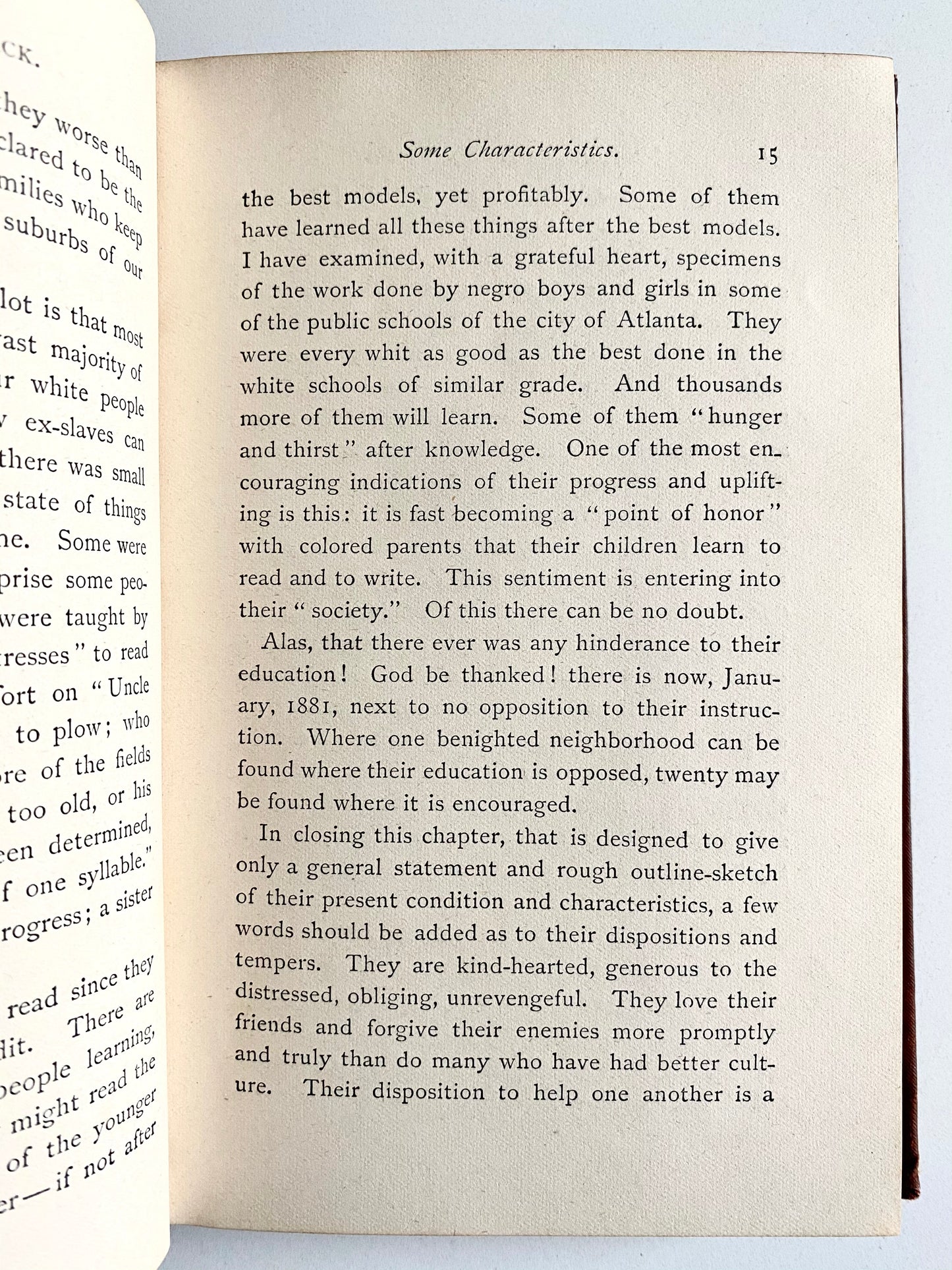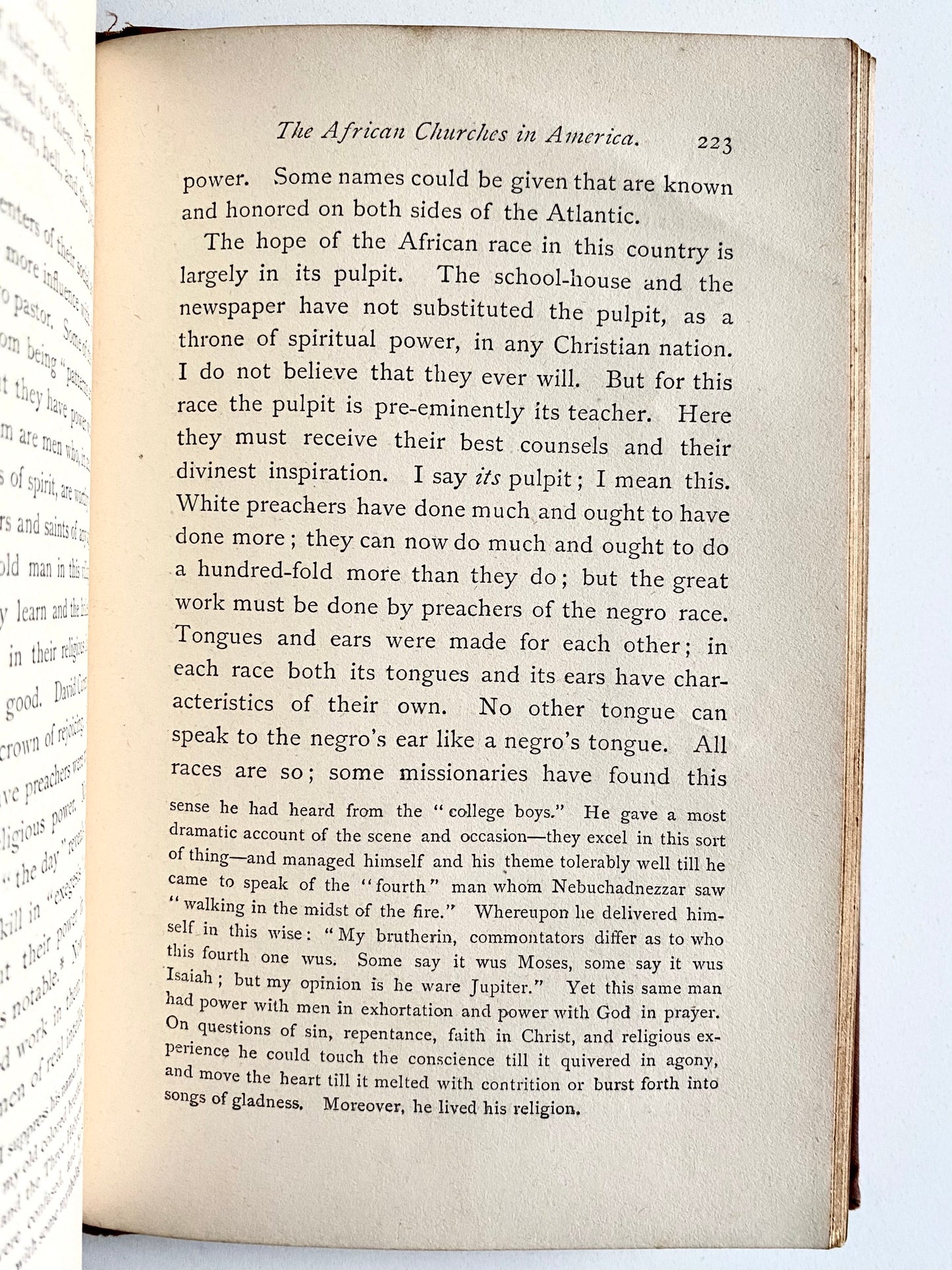Specs Fine Books
1881 TUSKEGEE & POST-SLAVERY. Our Brother in Black. His Freedom & Future. With Important Provenance
1881 TUSKEGEE & POST-SLAVERY. Our Brother in Black. His Freedom & Future. With Important Provenance
Couldn't load pickup availability
It is wonderful when items arrive that have it all; they're well-preserved, interesting, desirable, and carry with them a fascinating provenance. This certainly meets those criteria.
The book itself, written just after the Civil War, the emancipation of the slaves, and as the Freedmen's Bureau began petering out, represents an important shift in many white Christian minds, especially in the New South.
Before the Civil War, many Christians favored a return of black Americans to Africa, or the Colonization Society's plans in Liberia. The present however announces that black Americans are here to stay, recognizes their dignity and attributes, and projects the size and growth of their population, querying, "How many will they be in 1991?," and discussing the work of the Freedmen’s Bureau, Black Citizenship, The Need for Negro Schools, Good Work Currently being Done, Nature of African Churches, and more.
It is not a perfect work. In its pleas for justice to blacks in the New South, it remains “paternalistic and segregationist in its conception of the emerging black community.”
Fascinatingly, at the precise time this work was being issued, Tuskegee Normal School for Colored Teachers [now, Tuskegee University] was being founded. And its new articulate and vocal principal, Booker T. Washington, was finding his voice as an advocate for the southern freedmen.
This is where the provenance comes into play.
It is dedicated by the author, in his hand, to Rev. Morgan Calloway.
At the time, the author, Atticus G. Haygood, was serving as President of Emory University. He would later also become an agent of the Slater Fund for aid to black education, which would introduce him to Booker T. Washington and lead to his first-hand involvement with Tuskegee. He also served as a Methodist Bishop. His work supporting the emergence of black educational institutions was so well-known that when T. H. Tyson started the first Southern newspaper for black Americans in Oklahoma, it was called Our Brother in Black.
The recipient of the book, Rev. Morgan Calloway, was Vice President of Emory University under Haygood and a close personal friend. Under Haygood's influence, Calloway had undergone a "conversion" of sorts with regard to his views of black Americans. Before the Civil War and before his connection with Haygood, Calloway had been a slave owner and an ardent supporter of the Confederacy. By 1882, Calloway was so well known for his support for and love for the emerging black communities in Georgia that he was elected President of Paine College and pioneered a fully integrated white and black institution.
By 1883, both Haygood and Calloway were invited by Booker T. Washington to come to Tuskegee and give addresses during the second anniversary festivities.
So this precise book serves a sort of little icon at the center of a story about Christianity, slavery, the potential for change, and the beautiful graciousness of Booker T. Washington to forgive Calloway, recognize his growth, and invite him to full participation in the work for black Americans in the New South.
Haygood, Atticus G. Our Brother in Black: His Freedom and His Future. New York: Phillips & Hunt. 1881. First Edition. 252pp.
Good +. Very sound with bumping, worn through at extremities, a few discolored spots. Interior very crisp and clean with only the slightest foxing.
Share












